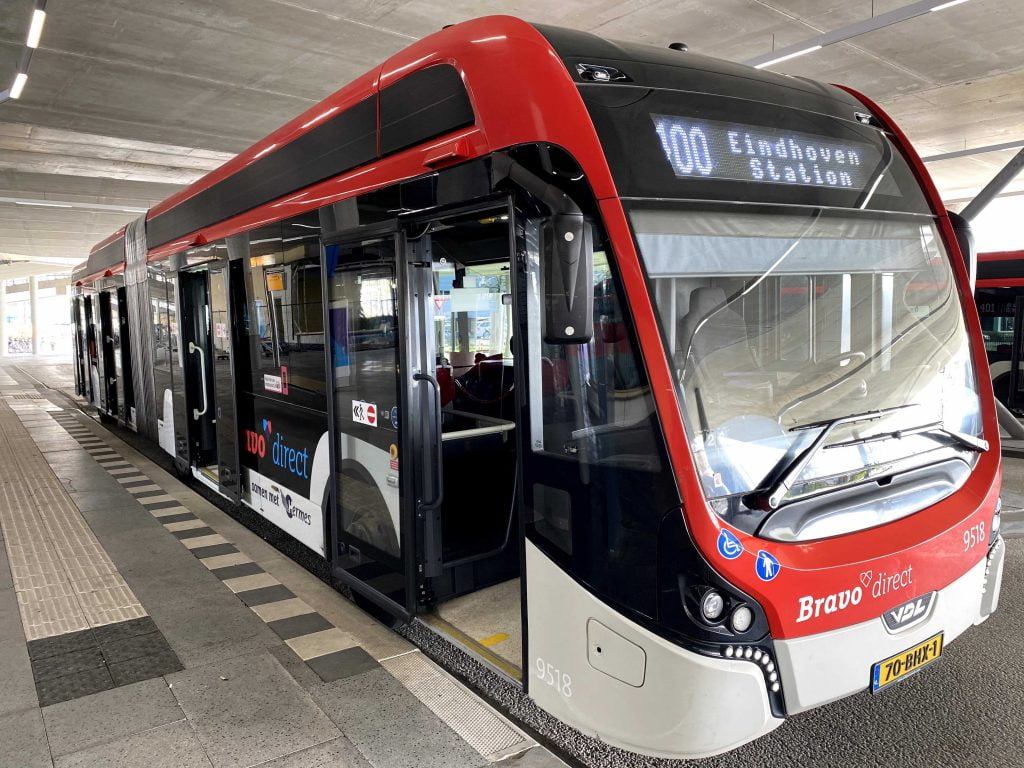Both Marijnissen and the party program envision a politics that is rooted in the experiences and needs of everyday people, rather than one that is limited to the corridors of power.
Lilian Marijnissen embodies the radical vision of the SP, as set out in their recent election manifesto 'Now the people.' Inspired by local actions and social activism, she is committed to a radical democratization of society and a redistribution of economic power.
With the publication of their election manifesto entitled 'Now the people', the Socialist Party (SP) has positioned itself strongly for the upcoming House of Representatives elections. The program is groundbreaking and provocative, and revolves mainly around the idea of a 'radical democratization of society'. A clear swipe at what the party sees as the elite and policies that favor the wealthy at the expense of the working class.
It is interesting that the SP has chosen not to have their election manifesto calculated by the Central Planning Bureau (CPB) this year. Instead, they make a clear political statement by saying that they do not believe in the CPB's models. This breaks the mold, and raises the question of whether it is an advantage – by drawing attention to their different approach to economics and policy – or a disadvantage, as some voters may lack the rigorous, independent analysis that a calculation can provide .
The party has ambitious plans for labor, with a proposed increase in the minimum wage to 16 euros per hour. At a time when drivers and parcel deliverers are increasingly speaking out about low wages and insecure working conditions, this proposal could have a significant impact on these professional groups. The focus on raising wages underlines the SP's traditional role as a champion of workers' rights.
The program also takes notable steps towards progressive climate policy. There is an explicit distance from measures that burden households and SMEs for climate efforts. Instead of a flight tax for the occasional holidaymaker, the SP proposes a 'frequent flyer tax' aimed at frequent business travelers. This approach appears to seek to strike a balance between necessary climate action and economic justice.

Although the party's plans are high-reaching, it remains to be seen to what extent they can be implemented, especially without the objective test of an independent calculation by the CPB.
Transport is another sector that receives special attention. The concept of public transport is being thoroughly revised, with a stronger role for provinces and the possibility of setting up their own transport companies, even in rural areas. The party wants to make public transport cheaper by abolishing VAT and is working towards free public transport. A remarkable promise is to immediately make city and regional transport free for the elderly, children and people with disabilities.
According to the SP, driving should not become more expensive, but cleaner. This seems to be in line with their overall strategy to spare households and SMEs from the costs of greening. The party advocates emission-free cars from 2035 at the latest, but speaks out against road pricing.
With regard to the railways, the party is committed to centralizing management by merging ProRail and the Dutch Railways into one public railway company. The intention is that this will stimulate passenger transport by train and make it more efficient. In addition, the aim is for more international train connections, which can not only provide attractive options for travelers, but can also contribute to making transport more sustainable.
Finally, the intention is to green aviation by encouraging the use of synthetic kerosene and electric taxiing. This is coupled with a reduction in the number of flights to reduce both the workload for employees and the inconvenience for local residents. New expansions of the aviation infrastructure, such as Lelystad Airport and new flight routes for Schiphol, are not allowed according to the program.
In short, the SP's election manifesto promises a major restructuring of various aspects of Dutch society, from the labor market to public transport and climate policy. Although it is questionable how many of these proposals will become reality, it is undeniable that they can ignite a robust debate about the future of the Netherlands.

In a political landscape where centrist positions often predominate, the SP places itself clearly on the left side of the spectrum. This is visible, for example, in their approach to climate change and sustainability, which does not place the burden primarily on the shoulders of individual citizens and small businesses.
Lilian Marijnissen, the Group Chairman of the SP in the House of Representatives, is a woman firmly rooted in activism and community life, something that becomes immediately clear when you look at the influences that have shaped her political career. Marijnissen often speaks about the inspiration she gets from the people she has campaigned with, whether they are healthcare workers or the children of a special school in her hometown of Oss that was threatened with closure.
This connection with the local community and with the everyday problems of the people is not only characteristic of her personally, but also of the SP as a party. It is this basic attitude of 'doing with the people' that not only connects her to the core values of her party, but that also resonates with a growing part of the Dutch population that feels alienated from traditional politics.
The stories Marijnissen shares, such as her mother's efforts to preserve a city playground in Oss, serve as illustrations of what collective action can achieve. This is a perspective that is often missing in a political arena dominated by parties that are more likely to negotiate within the boundaries of the existing system than to challenge the system itself. Unlike other parties, which mainly focus on alleviating the symptoms of social inequality, Marijnissen's SP is more focused on tackling the underlying causes.
Marijnissen's leadership of the SP has been strongly shaped by this ethos of community activism. Her view of politics as something that should not be far removed from people's daily lives, but rather intimately intertwined with their concerns and ambitions, offers an alternative to the kind of politics that often takes place in the ivory tower of The Hague.
In this respect, Marijnissen fits perfectly with the SP and its election manifesto, both of which want to see radical change in how the Netherlands is governed. She embodies the philosophy that real change is only possible through the direct input of the people most affected by government policies. Her leadership and vision provide an intriguing contrast to a political landscape often characterized by compromise and encapsulation, and they send a clear signal about the direction in which she and her party want to take the country.
Front page portrait of Lilian Marijnissen, by Robin de Puy.



